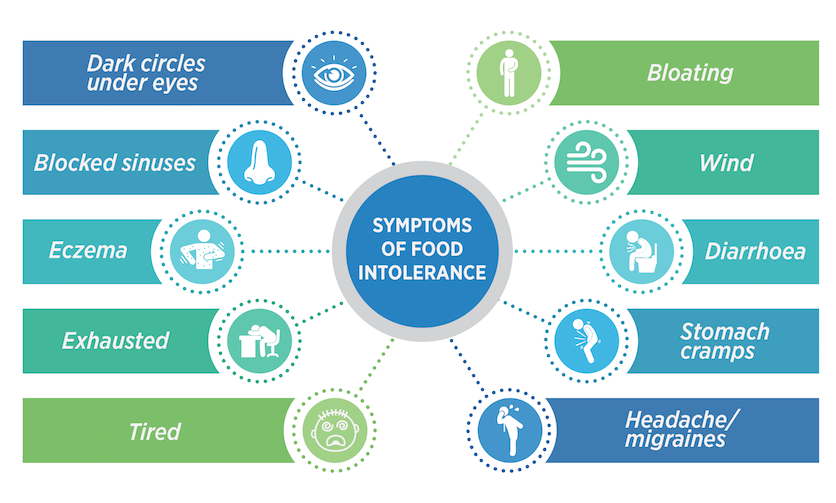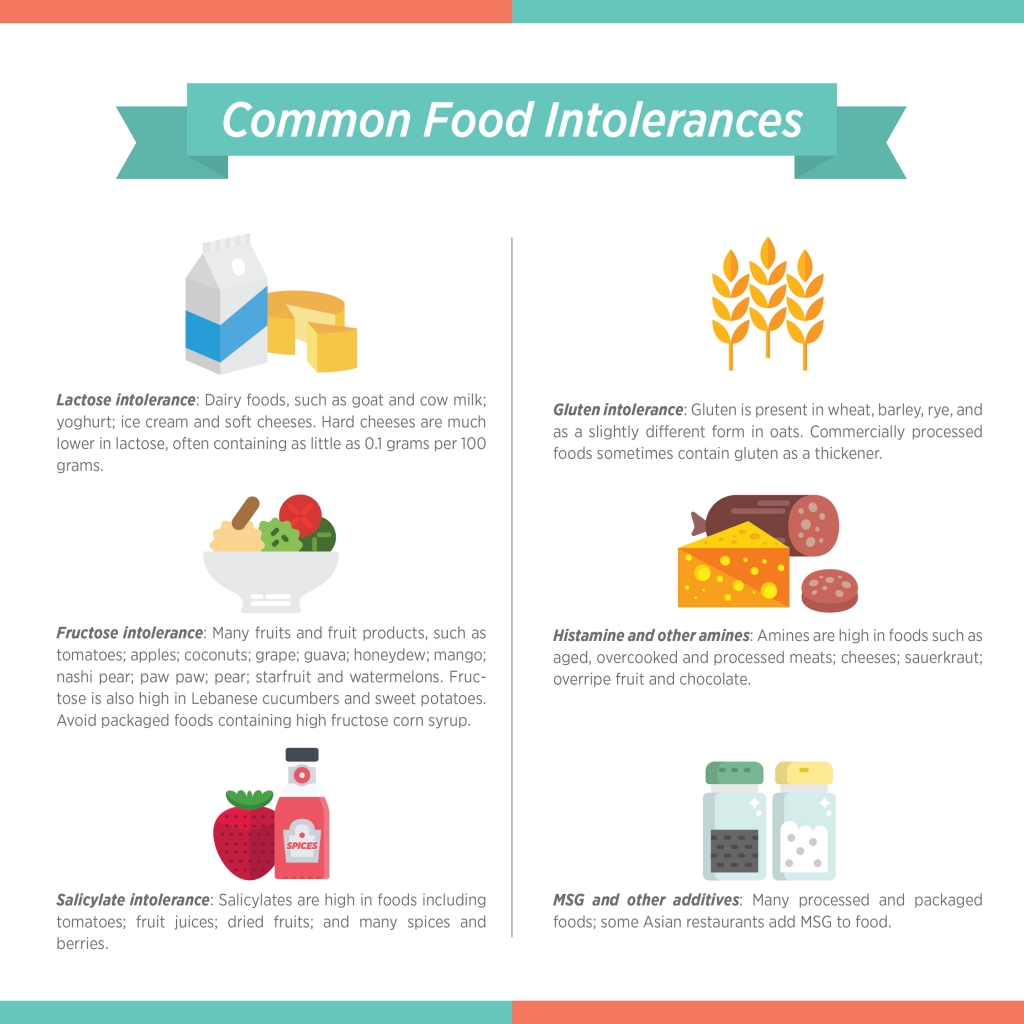Food intolerances are not just about having an upset stomach.
Do you ever feel bloated, wind, diarrhea, headache, tired, exhausted after eating or even have eczema/dermatitis that won’t clear up?
Have you considered food intolerances as the cause?
Food allergies and intolerances are unfortunately common, with around 19.1% of Australians reporting that they are allergic or intolerant to certain foods. With an allergy, symptoms appear rapidly and are severe enough that it is relatively easy to identify the allergenic food/s.

However, symptoms of food intolerances can be delayed (2hrs to 24hrs), can be mild to moderate and are often overlooked. People with food intolerances often complain about feeling tired and bloated all the time or experience eczema or dermatitis and may also suffer from frequent headaches or migraines.

Common food intolerances are:
Lactose intolerance: Dairy foods, such as goat and cow milk; yoghurt; ice cream and soft cheeses. Hard cheeses are much lower in lactose, often containing as little as 0.1 grams per 100 grams.
Fructose intolerance: Many fruits and fruit products, such as tomatoes; apples; coconuts; grape; guava; honeydew; mango; nashi pear; paw paw; pear; starfruit and watermelons. Fructose is also high in Lebanese cucumbers and sweet potatoes. Avoid packaged foods containing high fructose corn syrup.
Salicylate intolerance: Salicylates are high in foods including tomatoes; fruit juices; dried fruits; and many spices and berries.
Gluten intolerance: Gluten is present in wheat, barley, rye, and as a slightly different form in oats. Commercially processed foods sometimes contain gluten as a thickener.
Histamine and other amines: Amines are high in foods such as aged, overcooked and processed meats; cheeses; sauerkraut; overripe fruit and chocolate.
MSG and other additives: Many processed and packaged foods; some Asian restaurants add MSG to food.
Many food intolerances occur because our bodies just can’t break down something in the offending food, for example lactose or fructose. While this does not directly involve the immune system like an allergy, it may still lead to inflammation within the gut wall that causes a localised immune response. Our bodies are clever, in most cases, it repairs the damage, but if you continue to eat problem foods, it doesn’t get the opportunity to repair properly. When damage remains, the gut lining can become more permeable, which allows undigested foods into the blood and may worsen or create new intolerances. You may have also heard this referred to as leaky gut.
Food intolerance may also leave you unable to digest the particular food. It gets to the large intestine undigested and then your gut bacteria has a wonderful time trying to “eat” and ferment the food, leaving you feeling uncomfortable and bloated, having to undo the top button of your pants?! This may throw the populations of gut bacteria species out of balance (there is over a trillion of them!), causing a problem known as dysbiosis. And did you know that the brain and the gut actually “communicate” with each other and help each other out? The gut bacteria are partly responsible for the production of neurotransmitters, which affect a wide range of things like sleep, energy, mood and cognition. If they are out of balance, then so may be your levels of some neurotransmitters.
How do I know that I have a food intolerance?
I get asked this quite a lot and my first recommendation is to keep a diet dairy over three days, write down EVERYTHING you eat and how you feel afterwards. Delayed symptoms, usually including stomach discomfort can worsen after each time you eat the intolerant food, are most likely indicates an intolerance.
After this, an elimination diet where you exclude and then re-introduce each possible intolerance (and record your reaction, if any) is the best way to test for intolerances. However during this elimination phase I recommend a gut healing protocol that reduces inflammation, heals the gut lining and restores gut bacteria balance.
Make sure you read my next blog that helps you Identify Food Intolerances and how to Overcome them.
Food intolerances can be overwhelming and finding a place to start can be hard. Why not book a FREE health chat with so I can help you get started.


